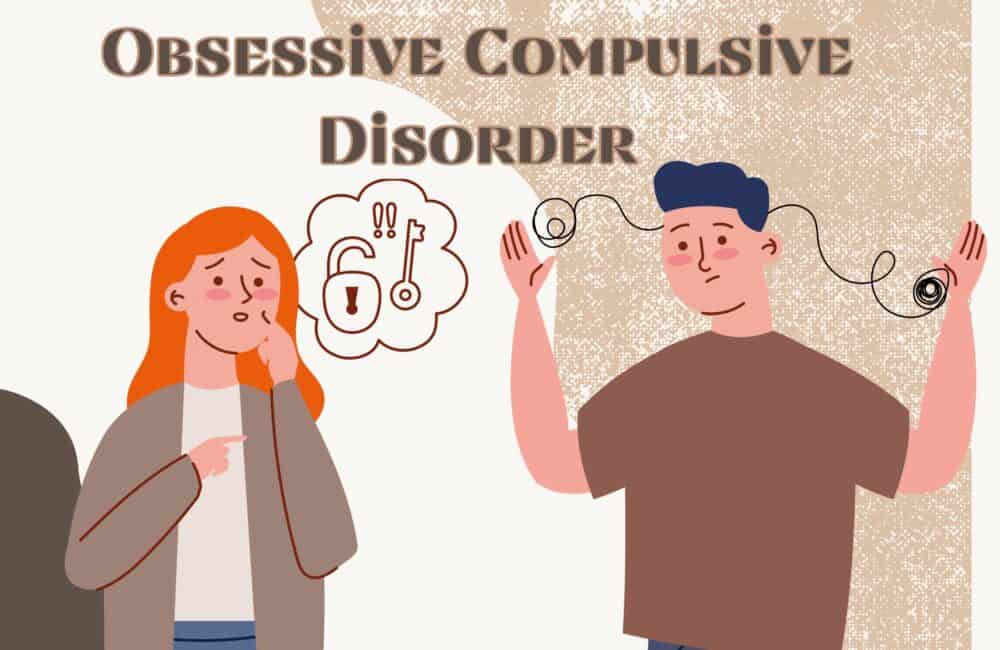Understanding OCD: Causes, Symptoms, and Treatment Options
Introduction

- Introduction
- Obsessive-Compulsive Disorder (OCD) is a mental health condition that affects millions of people worldwide. It is characterized by persistent, unwanted thoughts (obsessions) and repetitive behaviors (compulsions) that individuals feel compelled to perform. Despite common misconceptions, OCD is not just about cleanliness or orderliness; it is a serious condition that can significantly impact daily life. This blog will explore the causes, symptoms, and various treatment options for OCD, offering insight into how individuals can manage and seek help for this disorder.
- What is OCD?
- OCD is a chronic mental health disorder in which individuals experience recurring intrusive thoughts that cause anxiety, leading them to engage in compulsive behaviors to alleviate distress. These compulsions often provide temporary relief but reinforce the cycle of obsessions and compulsions over time.
- Difference Between Normal Worries and OCD
- Many people experience worries or double-check things occasionally. However, in OCD, these thoughts and behaviors are excessive, time-consuming, and interfere with daily life. Unlike general anxieties, OCD-driven behaviors are not simply preferences or habits but rather compulsions that the person feels unable to resist.
- Common Symptoms of OCD
- OCD symptoms vary widely, but they generally fall into two categories: obsessions and compulsions.
- Obsessions
- Obsessions are persistent, intrusive thoughts, images, or urges that cause significant distress. Common examples include:
- Fear of contamination by germs or dirt
- Fear of harming oneself or others
- Intrusive thoughts related to morality or religion
- Unwanted sexual or violent thoughts
- Excessive concern with symmetry, order, or exactness
- Compulsions
- Compulsions are repetitive behaviors or mental acts performed to reduce anxiety caused by obsessions. Common compulsions include:
- Excessive handwashing or cleaning
- Checking doors, locks, or appliances repeatedly
- Arranging items in a precise manner
- Counting, tapping, or repeating words mentally
- Seeking reassurance from others
- Causes and Risk Factors of OCD
- The exact cause of OCD is not fully understood, but research suggests a combination of biological, environmental, and psychological factors contribute to its development.
- Biological Factors
- Brain Chemistry: Abnormalities in neurotransmitters like serotonin may play a role in OCD symptoms.
- Genetics: Family studies suggest a hereditary component, as OCD often runs in families.
- Brain Structure: Research indicates that differences in brain activity, particularly in the frontal lobes and basal ganglia, may be linked to OCD.
- Environmental Factors
- Stress and Trauma: High-stress situations or traumatic events can trigger or worsen OCD symptoms.
- Childhood Experiences: Early life experiences, such as strict upbringing or overprotective parenting, may contribute to the development of OCD.
- Psychological Factors
- Cognitive Patterns: Individuals with OCD often engage in maladaptive thought processes, such as catastrophic thinking or perfectionism, which fuel obsessions and compulsions.
- How OCD is Diagnosed
- DSM-5 Criteria for OCD
- The Diagnostic and Statistical Manual of Mental Disorders (DSM-5) outlines the following criteria for diagnosing OCD:
- Presence of obsessions, compulsions, or both.
- The obsessions and compulsions are time-consuming (more than one hour per day) and cause significant distress or impairment in daily life.
- The symptoms are not attributable to substance use or another medical condition.
- Differentiating OCD from Other Anxiety Disorders
- While OCD shares features with anxiety disorders, it is distinct in its compulsive nature. Unlike generalized anxiety disorder (GAD), where worry is broad and less specific, OCD involves repetitive rituals in response to intrusive thoughts.
- Treatment Options for OCD
- Medication
- Medications can help regulate brain chemistry and reduce OCD symptoms. The most commonly prescribed drugs include:
- Selective Serotonin Reuptake Inhibitors (SSRIs): Medications such as fluoxetine, sertraline, and fluvoxamine are often used to treat OCD.
- Tricyclic Antidepressants: Clomipramine is another medication that has shown effectiveness in treating OCD.
- Cognitive Behavioral Therapy (CBT)
- CBT is one of the most effective treatments for OCD, particularly a technique called Exposure and Response Prevention (ERP).
- ERP Therapy: Individuals are gradually exposed to their fears and prevented from engaging in compulsions, helping them learn to manage anxiety without rituals.
- Cognitive Restructuring: This technique helps individuals identify and challenge irrational thoughts related to their obsessions.
- Lifestyle Changes and Self-Help Strategies
- While professional treatment is essential, lifestyle modifications can complement therapy and medication:
- Mindfulness and Meditation: Practices such as yoga and deep breathing exercises help reduce anxiety levels.
- Exercise and Healthy Routines: Regular physical activity and a balanced diet can improve mental health.
- Support Groups and Therapy: Connecting with others who have OCD can provide emotional support and coping strategies.
- Myths and Misconceptions About OCD
- Many myths surround OCD, leading to misunderstandings about the disorder. Here are some common misconceptions:
- “OCD is just about being neat and organized.” In reality, OCD can involve many different obsessions beyond cleanliness.
- “People with OCD can just stop their behaviors if they try hard enough.” OCD is a medical condition that requires treatment and cannot be controlled by willpower alone.
- “OCD isn’t a serious disorder.” For many, OCD can be debilitating and significantly impact their quality of life.
- Living with OCD: Managing Symptoms in Daily Life
- Individuals with OCD can adopt various strategies to manage their condition:
- Journaling: Keeping a record of obsessions and compulsions can help identify patterns and triggers.
- Breaking the Cycle Gradually: Working with a therapist to reduce compulsive behaviors step by step.
- Educating Family and Friends: Informing loved ones about OCD can help create a supportive environment.
- Conclusion
- OCD is a complex but treatable condition. With the right combination of therapy, medication, and self-help strategies, individuals can lead fulfilling lives despite their OCD symptoms. Early diagnosis and professional intervention are crucial in managing the disorder effectively. If you or a loved one is experiencing OCD, seeking help from mental health professionals can be the first step toward recovery.


